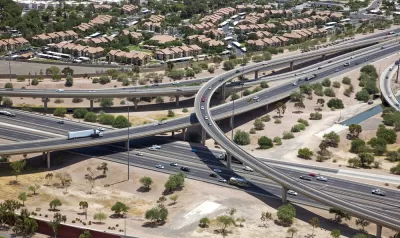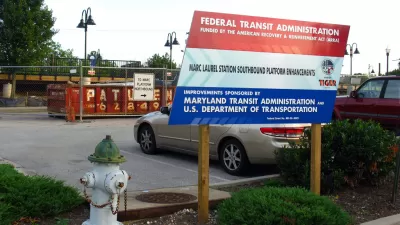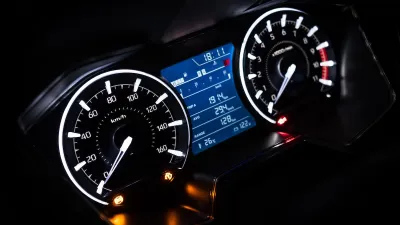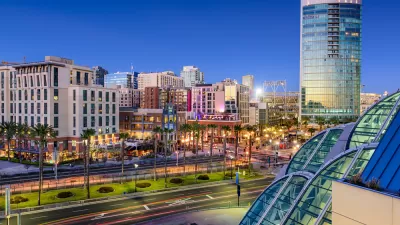Secretary Pete Buttigieg's statement that the per-mile-tax concept "shows a lot of promise" caused a stir, but a spokesperson for the U.S. Department of Transportation later claimed it won't be part of Biden's forthcoming infrastructure package.

After Transportation Secretary Pete Buttigieg hinted at a mileage tax during an interview, the U.S. Department of Transportation clarified last Saturday that "the Biden administration was not considering a plan to tax drivers by the number of miles that they drive," reports Connor Perrett for Business Insider.
When "specifically questioned about the efficacy of vehicle miles traveled (VMT) tax, which would tax drivers by the number of miles they drive and is seen as an alternative to taxing gasoline," during a CNBC interview last week, Buttigieg said the idea "shows a lot of promise," but made no specific promises. "You're hearing a lot of 'maybe' here because all of these things need to be balanced and could be part of the mix," he said.
Critics from both sides of the aisle worry that a VMT tax would unfairly tax people who cannot afford to live close to their jobs, disincentivize fuel-efficient vehicles, and raise privacy concerns when it comes to the data collection involved.
"To be clear, he never said that VMT was under consideration by the White House as part of this infrastructure plan—and it is not," Department spokesperson Ben Halle told Insider's Adam Wren. A $3 trillion infrastructure plan, expected to be unveiled this week, is expected to consist of two bills. "The first bill is expected to have a focus on upgrading bridges and roads while the second would focus on elements like education and childcare."

Alabama: Trump Terminates Settlements for Black Communities Harmed By Raw Sewage
Trump deemed the landmark civil rights agreement “illegal DEI and environmental justice policy.”

Study: Maui’s Plan to Convert Vacation Rentals to Long-Term Housing Could Cause Nearly $1 Billion Economic Loss
The plan would reduce visitor accommodation by 25% resulting in 1,900 jobs lost.

Why Should We Subsidize Public Transportation?
Many public transit agencies face financial stress due to rising costs, declining fare revenue, and declining subsidies. Transit advocates must provide a strong business case for increasing public transit funding.

Paris Bike Boom Leads to Steep Drop in Air Pollution
The French city’s air quality has improved dramatically in the past 20 years, coinciding with a growth in cycling.

Why Housing Costs More to Build in California Than in Texas
Hard costs like labor and materials combined with ‘soft’ costs such as permitting make building in the San Francisco Bay Area almost three times as costly as in Texas cities.

San Diego County Sees a Rise in Urban Coyotes
San Diego County experiences a rise in urban coyotes, as sightings become prevalent throughout its urban neighbourhoods and surrounding areas.
Urban Design for Planners 1: Software Tools
This six-course series explores essential urban design concepts using open source software and equips planners with the tools they need to participate fully in the urban design process.
Planning for Universal Design
Learn the tools for implementing Universal Design in planning regulations.
Smith Gee Studio
Alamo Area Metropolitan Planning Organization
City of Santa Clarita
Institute for Housing and Urban Development Studies (IHS)
City of Grandview
Harvard GSD Executive Education
Toledo-Lucas County Plan Commissions
Salt Lake City
NYU Wagner Graduate School of Public Service





























